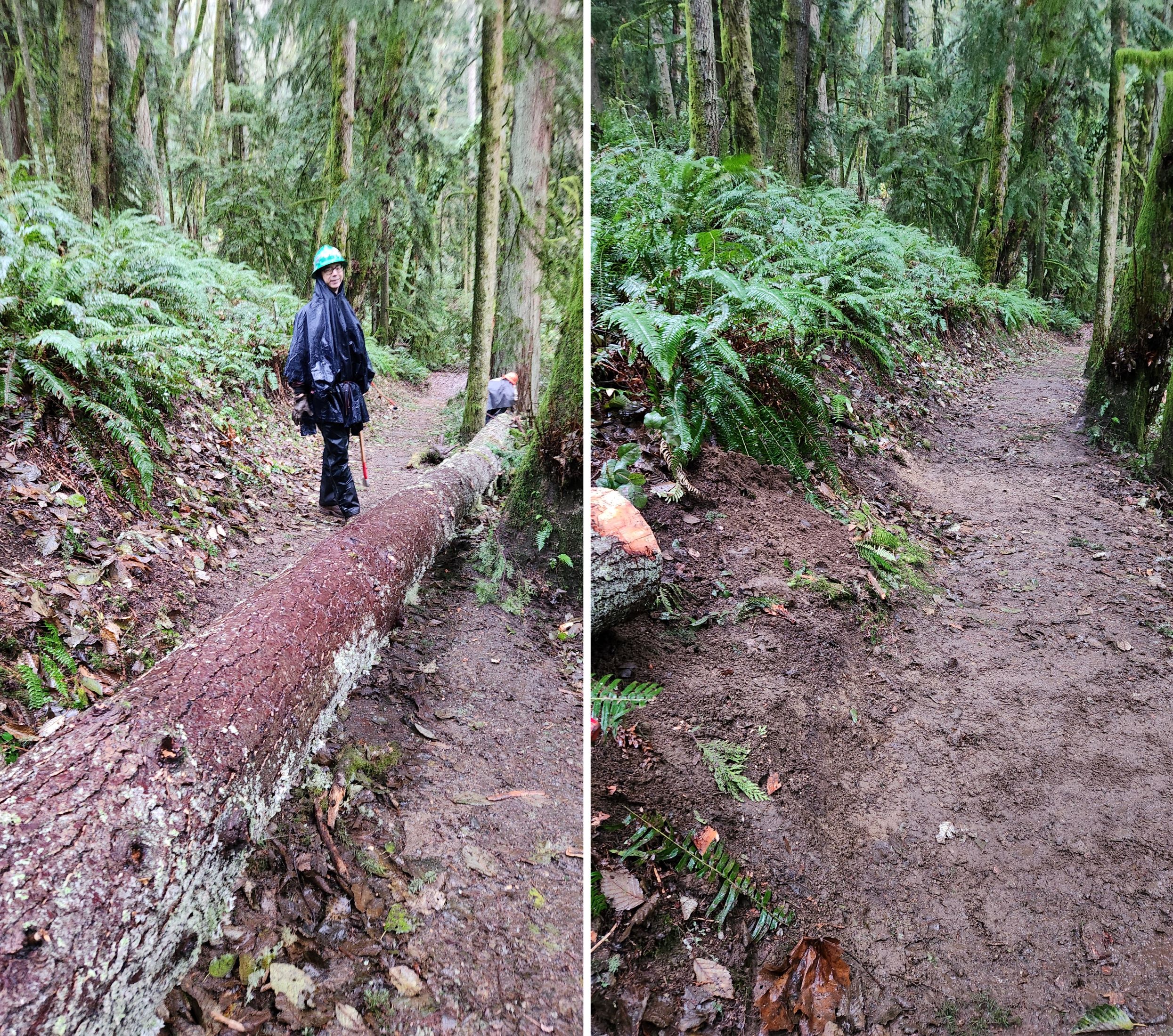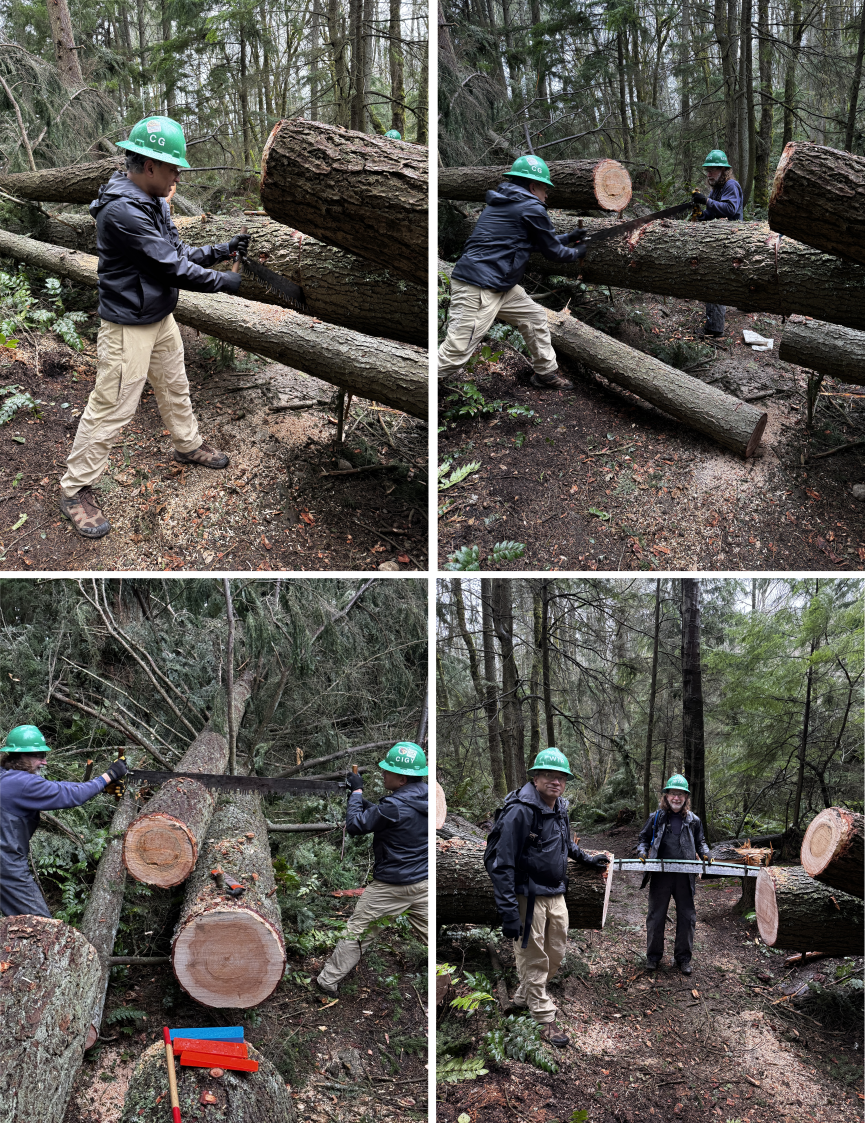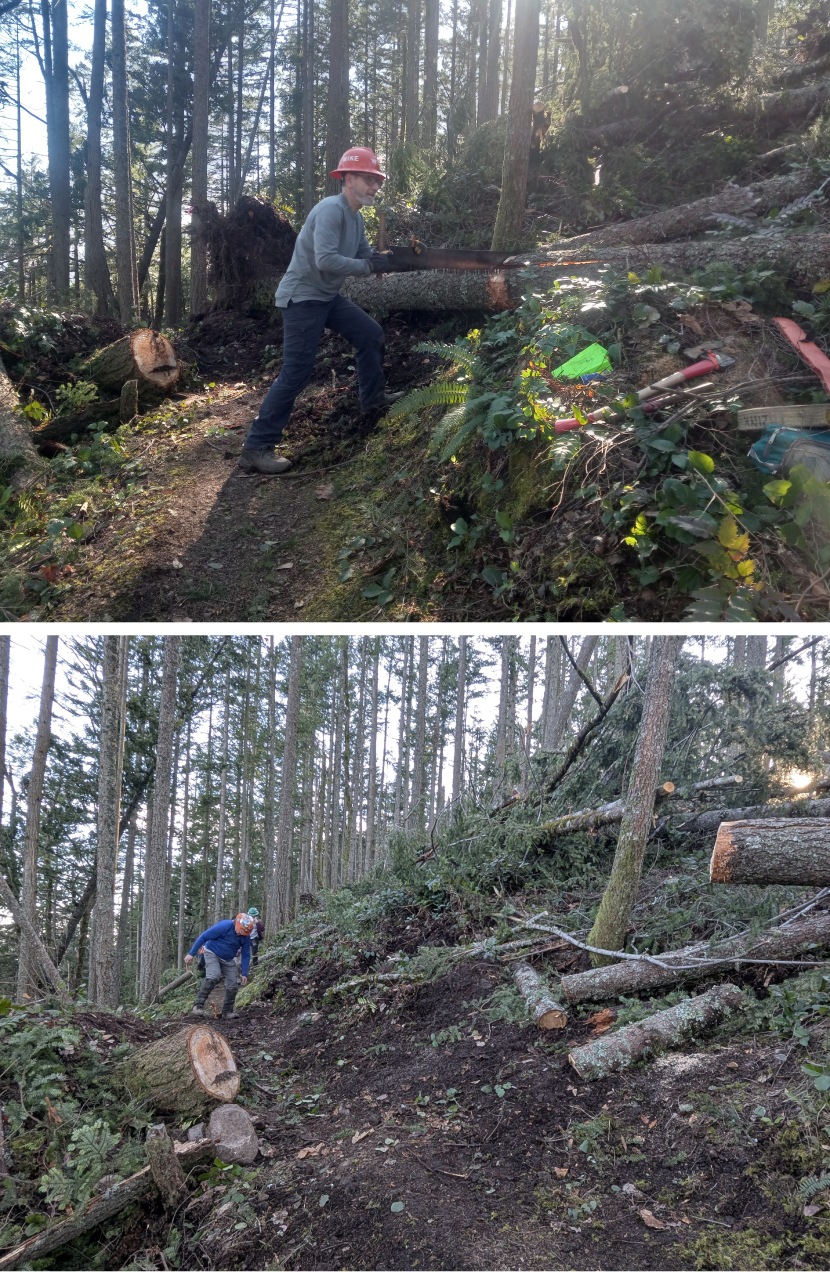When big damage requires heavy duty trail cleanup
In November 2024, the Pacific Northwest was hit by a bomb cyclone, and many of our trails were damaged by fallen trees and debris. For the last several months, WTA has been working with land managers and other organizations to get trails in the Issaquah Alps back open again.
In November 2024, the Pacific Northwest was hit by a storm that transformed into a bomb cyclone, with extremely high winds causing storm damage to infrastructure throughout the region. Thousands of Washingtonians lost power, and many places were bombarded with rain, wind and snow.
Some of our Washington trails sustained heavy damage from the storm, with hundreds of large trees blown over. Limb debris choked the trail corridor and large, upturned rootball carved craters out trails. Hikers wrote trip reports detailing what the trails looked like right after the storms ravaged them. Trip reports with pictures let WTA and land managers know what to prepare for.

A day of chainsaw logouts on Tiger Mountain. Photo by Emily Snyder.
Land managers quickly closed trails based on those trip reports and their own scouting, and prioritized which trails to work on first, opening loops and connector trails where possible. Many trails had damage that would be dangerous and complex to remove. Some of these trails remained closed for months as crews worked through the damage.
WTA started coordinating with the land managers shortly after the bomb cyclone ravaged Washington. Both WTA and local agencies knew the public was in a hurry to get back onto the trails, but terrain right after a big storm like that is dangerous — blowdowns and debris are unstable, and the technical work required to clear these blowdowns is dynamic and dangerous. It was important to land managers and WTA to make a clear plan to address the damage from the storm to keep everyone on trail safe.

A logout on Squak Mountain's Margaret's Way trail. Photos by Jane Futterman.
The Issaquah Alps were hit hard by the bomb cyclone, with multiple trails closed completely due to severe damage from the storm, including popular ones like the Iverson Railroad, Tiger Mountain, Margaret’s Way and Bullitt Fireplace trails. Over the last several months, WTA led several work parties at Tiger and Squak mountains — many led by volunteer crew leaders — to work collaboratively with other agencies and organizations including the Washington Department of Natural Resources, King County Parks and the Evergreen Mountain Bike Alliance.
We’ve removed dozens of blowdowns from the trails, massive rootballs, repaired tread and helped bring trails back to usable shape. Though there’s still work to be done, we’re proud of all our volunteers have accomplished these last few months in fixing up these trails!

More logging out on Squak Mountain. Photos by Cliff Cantor.

Removal of a large tree on Squak Mountain. Photos by Liza Noworyta and Samantha Collins.
Interested in joining WTA on trail? Check out our volunteer work party schedule — we have single day and multiday work parties, and no prior experience is required.


Comments